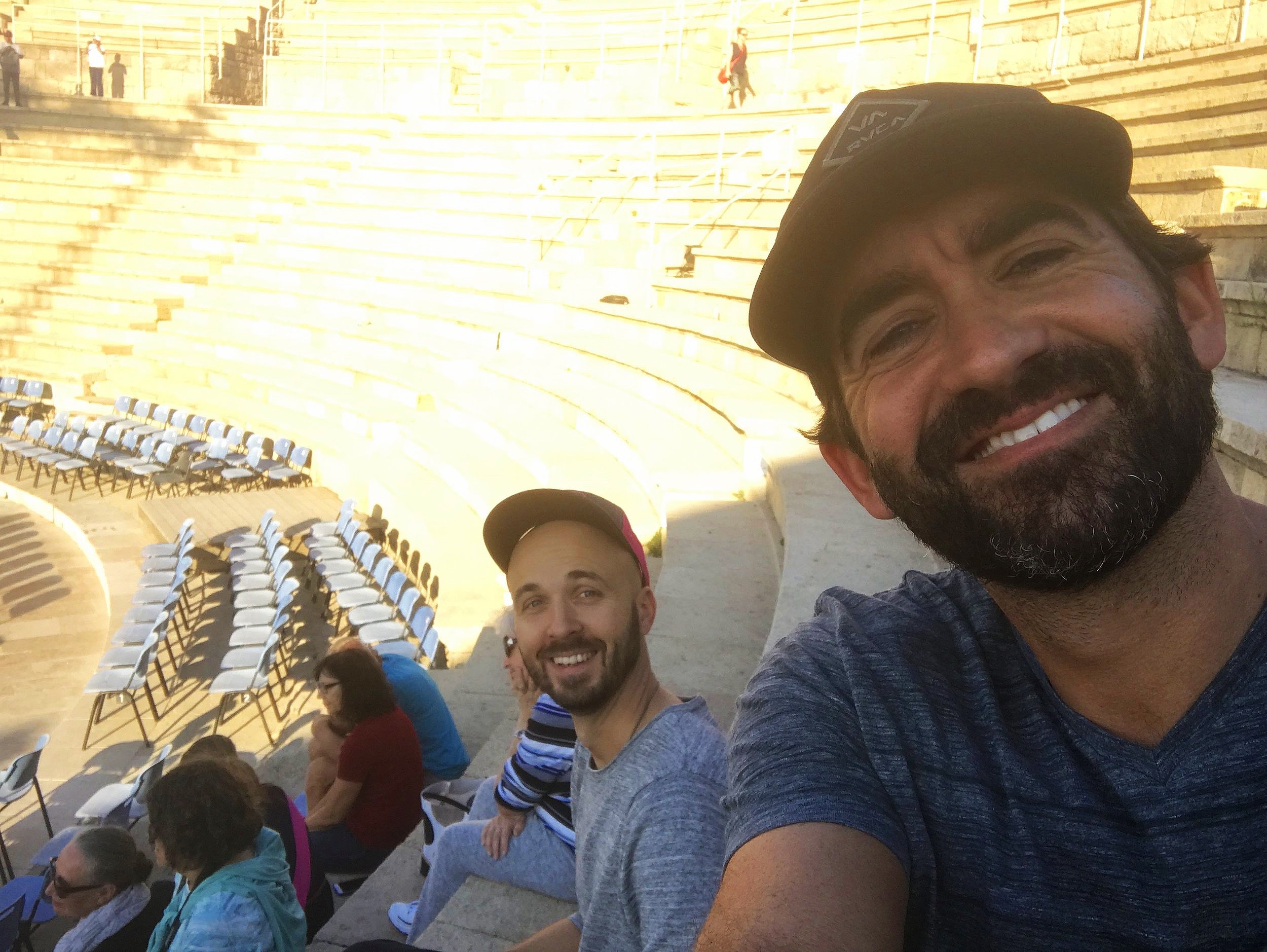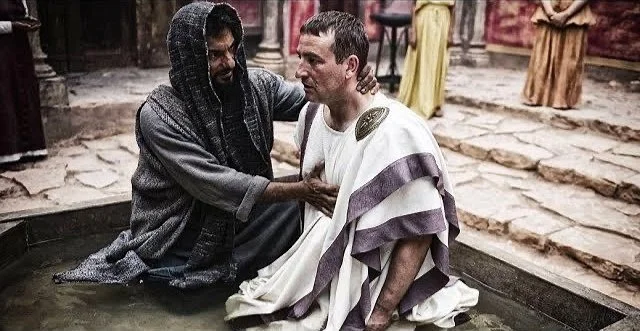CAESAREA
I associate Caesarea by the Sea with equal parts excitement and exhaustion. Only an hour north of the Tel Aviv airport, it’s often the first place to visit on a tour of Israel. It’s a stunning introduction to the beauty of the Land: on the coast of the Mediterranean, with its sun-soaked beaches and off-shore breezes. But, there are in fact a few notable events that happened here that we read about in the Bible…
…with Joshua Aaron in 2017
But first, a brief history…
Between 10-20 years before the birth of Jesus, Herod the Great rebuilt a small Phoenician settlement into a great harbor and port city, naming it after his patron, Caesar Augustus. Its construction was considered one of the technological marvels of the ancient world with its two massive walls of concrete blocks, submerged to serve as breakwaters, protecting up to 300 ships docked within the harbor!
Then in 6 AD, Rome named Caesarea the capital of the entire Judaean Province. Pontius Pilate made it his personal residence, only traveling to Jerusalem during the Feasts when the holy city would quintuple in population, like the Passover when he sentenced Jesus to death. A limestone block bearing Pilate’s name was discovered in Caesarea’s Roman theatre in 1961, further validating the veracity of the Bible.
IN CAESAREA…
Cornelius was Baptized…
Cornelius, a Roman Soldier, is the first recorded Gentile to believe in Jesus! He and his family are baptized by Simon Peter and filled with the Holy Spirit at their home in Caesarea! (Acts 10)
Paul was Imprisoned…
Paul spent two whole years imprisoned here before making his final journey to Rome. He preached the Gospel boldly to a number of prominent leaders, as recorded in Acts 23-26. We actually stood in the room where Paul is believed to have been held!
WHO GETS THE GLORY?
There is a short little story Luke records in the book of Acts on which the acclaimed Jewish historian Josephus shed even more light. One day, Herod Agrippa, at age 54, had to give a speech to a crowd of people from Tyre and Sidon who weren’t very happy with him. Luke records that Herod “donned his royal robes and, taking his seat upon the throne, began to make a speech to them.” (Acts 12:21)
The amphitheater at sunset, overlooking the Mediterranean.
But, Josephus adds some fascinating context…
“[Herod Agrippa] put on a garment made wholly of silver, and of a contexture truly wonderful, and came into the theater early in the morning; at which time the silver of his garment being illuminated by the fresh reflection of the sun’s rays upon it, shone out after a surprising manner, and was so resplendent as to spread over those that looked intently up on him…” -Josephus (Ant. 19.8.2 (344))
In other words, when the morning sun rose over the top of the stands, it reflected off of Herod’s silver-sequined robe making him a veritable human disco ball! The people shouted, “The voice of a god and not a human!”
Herod, however, was not humble. He accepted their praises, and God struck him dead.
So, after my first visit, before I left the amphitheater, I climbed the steps of that platform and took my place Centerstage, where Herod would have most likely positioned himself, and snapped the photo you see above. Then I paused. I took a breath, soaking in the view before me. Burying my pride, I shouted a word that Herod refused to say 2,000 years ago: “Hallelujah!!!”
Praise the LORD!
Caesarea Maritima in 2019
Pausing for a quick photo with my son Nicky!







